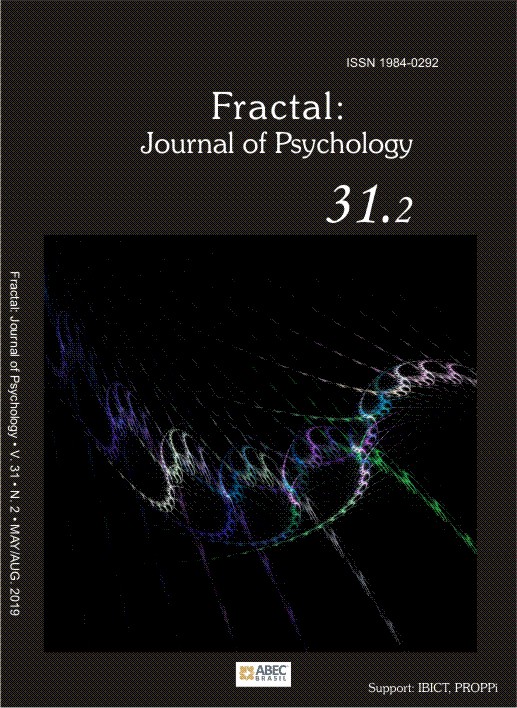Hip-hop culture and the fight against violence: an extensionist university strategy
DOI:
https://doi.org/10.22409/1984-0292/v31i_esp/29041Keywords:
violence, hip-hop, hearing, clinical-political, youthsAbstract
The extension and research college projects need deal with the racism manifest in the relations between people and in the statistical data about young Brazilians deaths. The map of the violence of 2016 made explicit the extermination of young black males. How is mourning drawn up by family members and what conditions would restrain violence? The purpose of this article is to present the project “Clinical-political hearing of subjects in critical social situations” that was born with the intention of listening to mothers who lost children in situations of State violence, as well as with the objective of offering activities for adolescents and young people struggling for life. One of the methods used in the extensionist actions was the offer of a conversation wheel, “Hip-hop and the Fight against Violence”, whose result was the emergence of three themes; hip-hop culture as a possible dream; cultural manifestation as an anchorage point for the subjects; art as a way of occupying public spaces. Therefore, the authors invite the psychologists to create spaces of hearing, talking and action about brazilian social inequality.Downloads
References
AMARAL, Monica Guimaraes Teixeira do. O rap, o hip-hop e o funk: a “eróptica” da arte juvenil invade a cena das escolas públicas nas metrópoles brasileiras. Psicologia USP, São Paulo, v. 22, n. 3, p. 593-620, 2011. http://dx.doi.org/10.1590/S0103-65642011005000025
AMARAL, Monica Guimaraes Teixeira do. Expressões estéticas contemporâneas de resistência da juventude urbana e a luta por reconhecimento: uma leitura a partir de Nietzsche e Axel Honneth. Revista do Instituto de Estudos Brasileiros, São Paulo, n. 56, p. 73-100, 2013a. http://dx.doi.org/10.11606/issn.2316-901X.v0i56p73-100
AMARAL, Monica Guimaraes Teixeira do. O Rap, a revolução e a educação: do Bronx à Primavera Árabe. Ide, São Paulo, v. 36, n. 56, p. 145-159, 2013b. Disponível em: http://pepsic.bvsalud.org/scielo.php?script=sci_arttext&pid=S0101-31062013000200010&lng=pt&nrm=iso. Acesso em: 26 jun. 2017.
ARRUDA, Daniel Péricles. Espelho dos invisíveis: o RAP e a poesia no trabalho prático-reflexivo com adolescentes em cumprimento de medida socioeducativa de internação em Belo Horizonte (MG). 2012. Dissertação (Mestrado em Serviço Social). Programa de pós-graduação da Pontifícia Universidade Católica de São Paulo, São Paulo, 2012.
ARRUDA, Daniel Péricles. Cultura hip-hop e serviço social: a arte como superação da invisibilidade social da juventude periférica. 2017. Tese (Doutorado em Serviço Social)_Faculdade Serviço Social, Pontifícia Universidade Católica de São Paulo, São Paulo, 2017.
BRASIL. Presidência da República. Casa Civil. Subchefia para Assuntos Jurídicos. Lei nº 12.711, de 29 de agosto de 2012. Dispõe sobre o ingresso nas universidades federais e nas instituições federais de ensino técnico de nível médio e dá outras providências. 2012. Disponível em: http://www.planalto.gov.br/ccivil_03/_ato2011-2014/2012/lei/l12711.htm. Acesso em: 12 jul. 2018.
BROIDE, Jorge; BROIDE, Emília Estivalet. A psicanálise em situações sociais críticas. São Paulo: Escuta, 2015.
CERQUEIRA, Daniel et al. Atlas da violência 2017. São Paulo: Instituto de Pesquisas Econômicas Aplicadas, 2017.
CERRUTI, Marta Quaglia. Movimento hip-hop: novas perspectivas para o processo de responsabilização do jovem em conflito com a lei. Revista Brasileira de Ciências Criminais, n. 109, p. 313-324, 2014.
CERRUTI, Marta Quaglia. O jovem e o rap: ética e transmissão nas margens da cidade. 2016. Tese (Doutorado em Psicologia)_Instituto de Psicologia, Universidade de São Paulo, São Paulo, 2016.
CRUZ, Elaine Patrícia. Crimes de Maio causaram 564 mortes em 2006: entenda o caso. Agência Brasil, 2016. Disponível em: http://agenciabrasil.ebc.com.br/direitos-humanos/noticia/2016-05/crimes-de-maio-causaram-564-mortes-em-2006-entenda-o-caso. Acesso em: 7 abr. 2018.
KEHL, Maria Rita. Radicais, Raciais, Racionais: a grande fratria do rap na periferia de São Paulo. São Paulo em perspectiva, São Paulo, v. 13, n. 3, p. 95-106, jul./set. 1999. http://dx.doi.org/10.1590/S0102-88391999000300013
IMBRIZI, Jaquelina Maria; MARTINS, Eduardo de Carvalho. Escuta clínico-política de sujeitos em situações sociais críticas. Projeto de Extensão Universitária_Unifesp – Baixada Santista, Santos, SP, Brasil, 2017.
MACHADO, Thaís Fabiana Farias. Territórios, sociabilidades e jovens da Zona Noroeste de Santos – SP: significados e experiências em contextos de violência urbana. 2017. Dissertação (Mestrado Interdisciplinar)_Universidade Federal de São Paulo, Baixada Santista, Santos, 2017.
RODRIGUES, Mateus. Após cotas, universidades federais ficam ‘mais populares e negras’. G1, 2016. Disponível em: https://g1.globo.com/educacao/noticia/apos-cotas-universidades-federais-ficam-mais-populares-e-negras-diz-estudo.ghtml. Acesso em: 7 de abr. 2018.
ROSA, Miriam Debieux. A clínica psicanalítica em face da dimensão sociopolítica do sofrimento. São Paulo: Escuta/Fapesp, 2016.
ROSA, Miriam Debieux; VICENTIN, Maria Cristina. Os intratáveis: o exílio do adolescente do laço social pelas noções de periculosidade e irrecuperabilidade. Revista Psicologia Política, São Paulo, v. 10, n. 19, p. 107-124, 2010. Disponível em: http://pepsic.bvsalud.org/scielo.php?script=sci_arttext&pid=S1519-549X2010000100010&lng=pt&nrm=iso. Acesso em: 12 maio 2018.
WAISELFSZ, Julio Jacobo. Mapa da violência 2016: homicídios por arma de fogo no Brasil. Rio de Janeiro: FLACSO Brasil, 2016.
Downloads
Published
How to Cite
Issue
Section
License
Authors publishing in this journal agree to the following terms:
- Authors retain copyright and grant the journal the right of first publication, with the work simultaneously licensed under the Creative Commons Attribution License allowing sharing of the work with acknowledgement of authorship of the work and initial publication in this journal.
- Authors are permitted to enter into additional contracts separately for non-exclusive distribution of the version of the work published in this journal (e.g., publishing in an institutional repository or as a book chapter), with acknowledgment of authorship and initial publication in this journal.

This work is licensed under a Creative Commons Attribution 4.0 International License.
To the extent possible under the law, Fractal: Journal of Psychology has waived all copyright and related rights to the Reference Lists in research articles. This work is published in: Brazil.
To the extent possible under law,Fractal: Journal of Psychology has waived all copyright and related or neighboring rights to Reference lists in research articles. This work is published from: Brazil.







